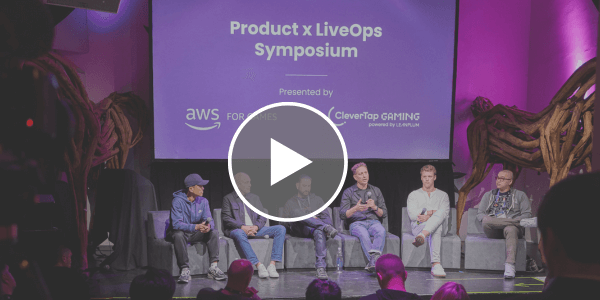The integration of Artificial Intelligence (AI) into game development and live operations is setting a new paradigm in the gaming industry. At our recent Product X LiveOps event, heavy hitters from across the industry – including Blizzard’s Allen Adham, LILA Games’ Joseph Kim, Carbonated’s Travis Boatman, and a16z’s Troy Kirwin – took the stage to highlight the transformative impacts of AI on gaming, with a focus on both current applications and future potential. Read on for a summary of their key discussion points, or view the full conversation here.
AI-Driven Revenue and Engagement Strategies
One of the most compelling uses of AI in gaming is its ability to dramatically enhance live operations, significantly boosting game revenues and player engagement. Examples such as the sixfold revenue increase in “Brawl Stars” after implementing AI-driven strategies demonstrate the powerful impact of these technologies. AI’s capability to personalize player experiences and optimize game economies was also emphasized as a critical factor in prolonging the lifespan and profitability of games.
Content Creation and Operational Efficiency
AI is also revolutionizing content creation, allowing smaller development teams to produce content at a scale and speed previously only achievable by larger studios. This is particularly beneficial for maintaining a rapid content refresh cycle, crucial for retaining player interest over time. Furthermore, AI tools are instrumental in automating routine tasks such as game localization, reducing overhead costs and enabling developers to focus on more creative aspects of game development.

Power panel: Joseph Kim, Allen Adham, Solomon Ruiz-Lichter, Travis Boatman, Troy Kirwin, and Tim Hong at our Product X LiveOps Symposium @ GDC
Enhancing Player Experience and Retention
The discussion highlighted the use of AI to enhance player experience through personalized interactions and tailored content. For instance, AI can generate unique backstories for different game locales or personalize dialogues in multiple languages, significantly improving player immersion and satisfaction. These tailored experiences are key to increasing player retention and engagement, critical metrics for the success of any game.
Managing Challenges: Toxicity and Player Behavior
AI’s role in managing in-game environments cannot be overstated. Tools that monitor and moderate player interactions help maintain a healthy gaming environment, essential for player retention. AI-driven solutions can identify and mitigate toxicity, which not only improves the player experience but also supports community health, reducing churn and fostering a positive brand image.
Future Directions and Strategic Implementation
For gaming companies, the strategic implementation of AI technologies represents a significant competitive edge. To remain relevant and competitive, it is crucial for companies to invest in AI capabilities. This involves not only adopting the technology but also fostering a culture that embraces continual learning and innovation.
In conclusion, AI in gaming is more than just a technological upgrade—it is a transformative force that redefines the creation, operation, and experience of games. By strategically integrating AI, gaming companies can unlock new levels of efficiency, create more engaging content, and build deeper relationships with players. As the industry continues to evolve, embracing AI is not just an option; it is imperative for those looking to lead in the digital entertainment landscape.
To harness AI effectively, gaming professionals and companies should focus on a few key areas:
- Education and Training: Invest in upskilling teams to understand and utilize AI tools effectively.
- Strategic Investment: Allocate resources strategically to develop AI capabilities that align with business goals.
- Ethical Considerations: Develop frameworks for the ethical use of AI, considering privacy, fairness, and transparency.
- Innovation and Experimentation: Encourage a culture of innovation that leverages AI to experiment with new game designs and operational strategies.
Watch the full conversation here.
Momchil Kyurkchiev 
Heads North America Region. Expert in multi-channel customer engagement & co-founder of Leanplum.
Free Customer Engagement Guides
Join our newsletter for actionable tips and proven strategies to grow your business and engage your customers.
















































